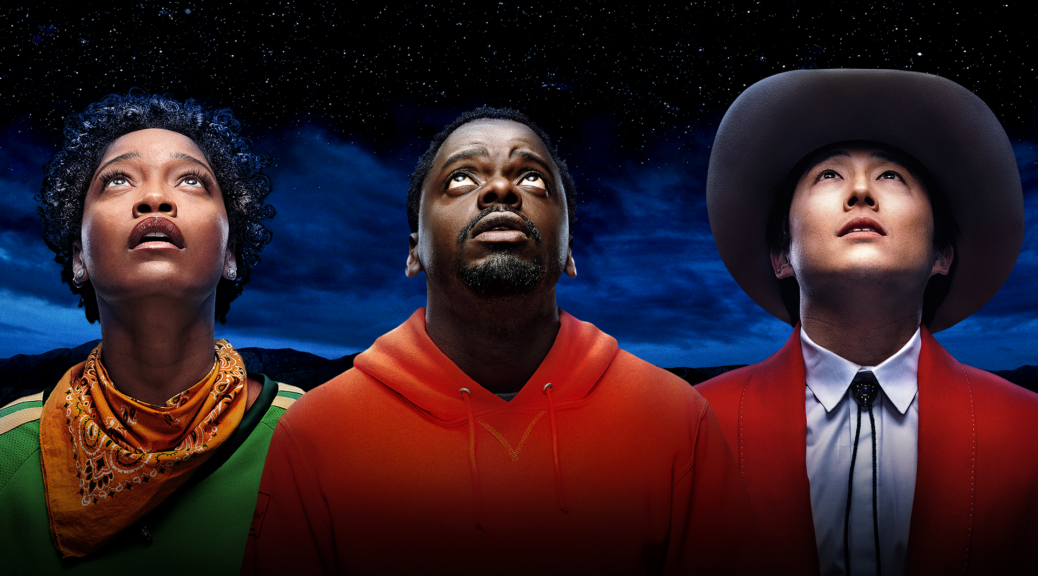Nope
by Hope Madden and George Wolf
There are some truly frightening moments in Nope. Some revolve around things you may think you know based on the trailer. Others feature a bloody monkey in a party hat.
All these and more are tucked inside the kind of patient and expansive brand of storytelling you might not expect from writer/director/producer Jordan Peele. Where the filmmaker’s first two exceptional features explored wildly different styles of horror, his third effort, though scary, taps much more into Sci-Fi.
And Nope has plenty to say about Black cowboys, the arrogance of spectacle, and getting that elusive perfect shot.
OJ Haywood (Daniel Kaluuya) and his sister Emerald (Keke Palmer) work under their father Otis, Sr. (Keith David) at the only Black-owned horse training business in Hollywood. The Haywood lineage dates back to the very first “assembly of photographs to create a motion picture,” and Haywood’s Hollywood Horses serves various TV and film productions out of a remote California ranch.
But recently, OJ has also been doing business with Ricky “Jupe” Park (Steven Yeun), a former child star who runs a nearby tourist attraction. Some amazing things have been happening there, and Ricky seems to need more and more horses to keep the people amazed.
Toss in Brandon Perea as a dangerously curious tech store worker and the inimitable Michael Wincott as an esteemed and disenchanted cinematographer and you have a remarkable set of oddball characters, each brought to life with peculiar but sympathetic performances.
Peele’s direction and writing effortlessly mine comedic moments, but Nope is no comedy. He unravels a mystery before your eyes, and his shot-making has never been so on point. The way he splashes color and motion across this arid landscape is stunning. His visual cues—often executed with macabre humor and panache—amplify the film’s themes while inducing anxiety.
Palmer and Kaluuya are a fantastic pair, sharing an uneasy, lived-in familial tension. Their battling energy—OJ is slow-moving and soft-spoken to Em’s live wire—contributes to the film’s discombobulating feel. Yeun delivers a surprise turn as a man still trading on past glories at a theme park. But everyone here has a relationship to the dangerous, life-altering, perhaps idiotic act of filming, of entertainment, of spectacle.
It feels a bit like Peele is saying that making a movie will kill you, if you’re lucky. But opening a film with a Biblical passage is no accident, and on a grander scale, Peele has crafted a genre-loving ode to a comeuppance tempted by grandiose delusions.
Nope is a tense, gorgeous, funny, insightful and ambitious thrill ride, which updates the filmmaker’s scorecard to three for three. And while Peele may still feel like he’s chasing perfection, here’s hoping he just keeps chasing.







